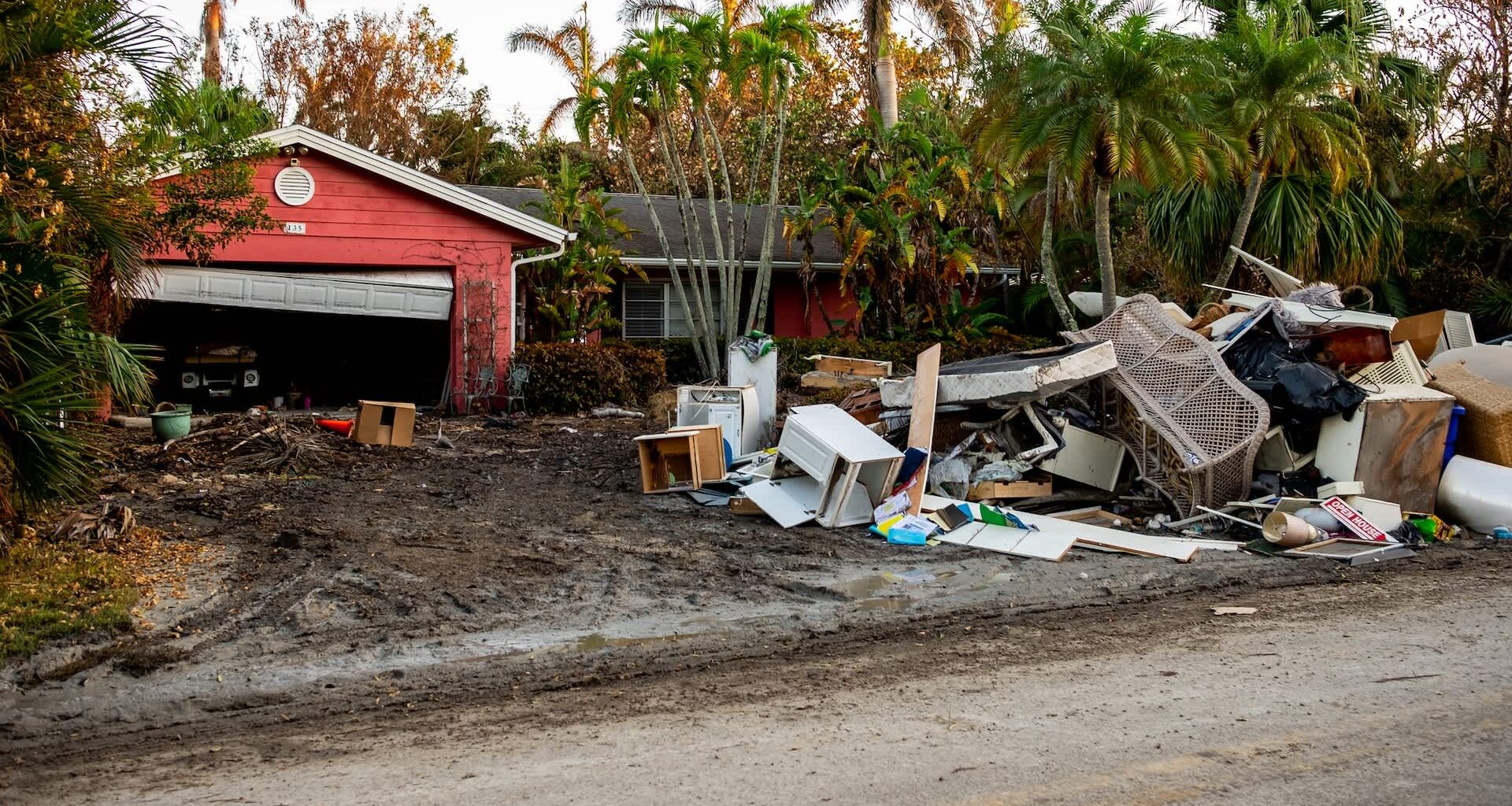As communities worldwide face the consequences of rising global temperatures, insurance claims for damage in supercharged storms are increasing.
In an article, The New Republic reported on how underwriters in Florida were making a profit while denying customers’ claims.
What’s happening?
Suzi Bahan owned and operated a small tiki bar in a Fort Myers Beach town until Hurricane Ian blew through and reduced everything she had to shambles.
As Bahan described to The New Republic: “The day that I walked over that bridge and I saw what was left of my life, I literally hit my knees. It was life-altering.”
With two insurers, Bahan had hoped to recover. While the first paid her promptly, the second ultimately did not pay her, and she is appealing a lawsuit.
Bahan isn’t alone in these experiences. Many are struggling to get their insurance money in the face of disaster. A 2024 article from the Professional Law Group found that 26% to 50% of Florida insurance claims were denied in the wake of hurricanes throughout the 2023-2024 season.

Want to go solar but not sure who to trust? EnergySage has your back with free and transparent quotes from fully vetted providers that can help you save as much as $10k on installation.
To get started, just answer a few questions about your home — no phone number required. Within a day or two, EnergySage will email you the best local options for your needs, and their expert advisers can help you compare quotes and pick a winner.
Some insurance companies are even sneakily increasing deductibles to balance the uptick in claims. And it isn’t just for hurricanes. Californians also risk rising insurance rates in the face of increased wildfire risk.
Why is property damage in an era of extreme weather concerning?
Natural disasters existed even before humans were around to experience them. However, the heightened intensity of these weather patterns is likely due to the burning of dirty energy, scientists agree.
As we continue to burn dirty energy sources that trap heat in the atmosphere, global temperatures continue to rise.
When the atmosphere is warmer, storms can pull more vapor from the oceans as they travel toward land. Stronger storms lead to more rainfall, more forceful winds, and increased flooding risks. This also extends in the other direction, as regions experience extreme drought and subsequent or related wildfires.
In the face of these disasters, insurance companies are raising prices and refusing payouts. This leaves communities already vulnerable to the impacts of extreme weather in even more precarious situations.
What’s being done about insurance in the face of extreme weather?
According to American Progress, as insurance companies are not doing enough to cover property owners’ costs, government programs are cropping up to step in. These include state government Fair Access to Insurance Requirements or federal programs such as the National Flood Insurance Program.
The Citizens’ Climate Lobby acknowledges the issue of insurance but admits that the only real way to address the issue is to make changes to reduce the pollution that adds to the climate problem.
Join our free newsletter for good news and useful tips, and don’t miss this cool list of easy ways to help yourself while helping the planet.
